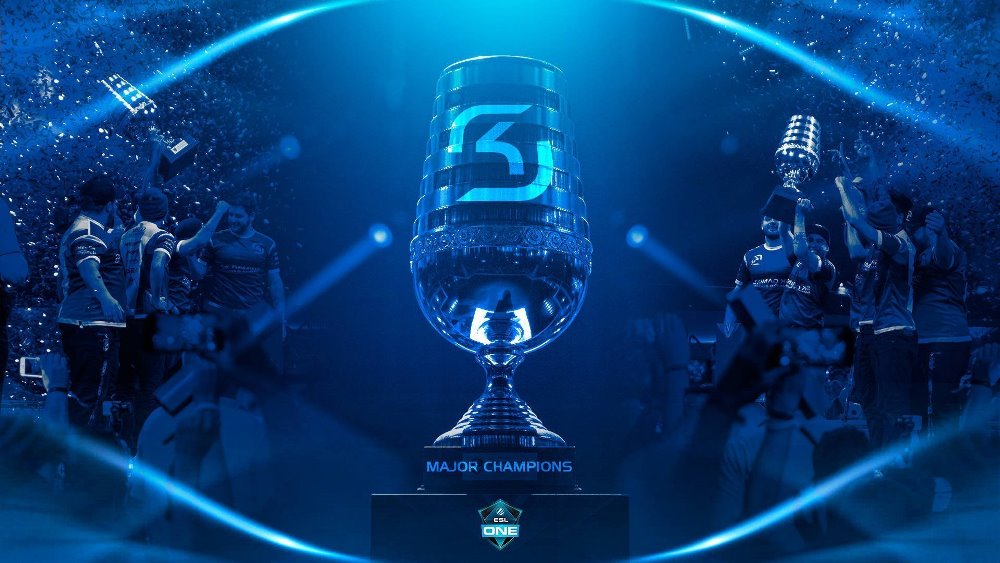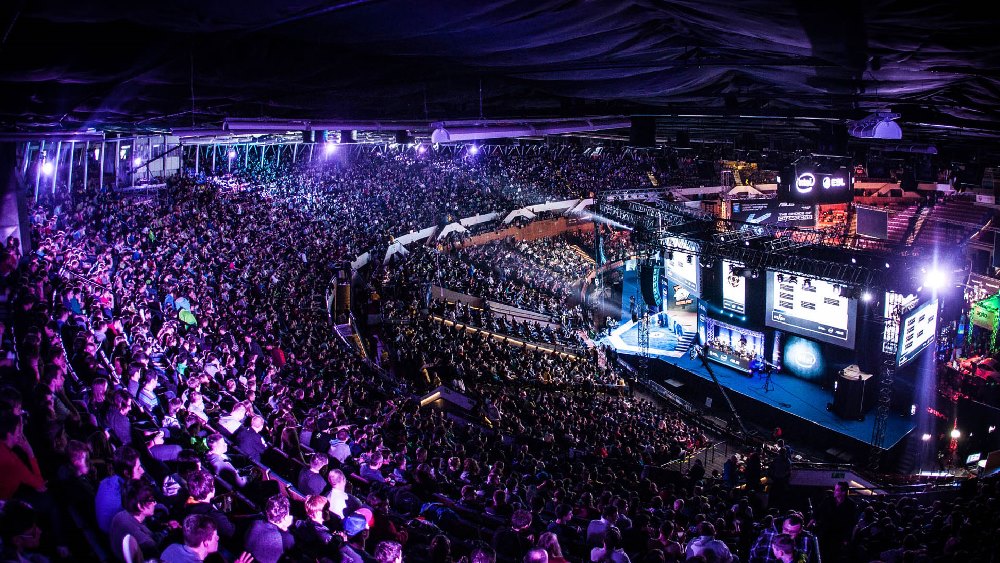
In Counter-Strike: Global Offensive (CS:GO), a team victory is achieved by successfully completing the objectives of each round and ultimately winning the majority of rounds in a match.
Here are the basics of achieving team victory in CS:GO:
- Communication: Effective communication is crucial in CS:GO. Players need to communicate important information such as enemy positions, strategies, and utility usage to coordinate their actions effectively. Good communication allows teams to make informed decisions and respond quickly to changing situations.
- Strategy and Tactics: Teams should develop strategies and tactics for different maps and scenarios. This includes deciding on the most effective bombsites to attack or defend, coordinating utility usage, and determining roles and positions for each player. Having a well-thought-out game plan increases the chances of success.
- Economy Management: CS:GO has an economy system where players earn in-game currency to buy weapons, armor, and utility. Teams must manage their economy wisely, considering when to save money, when to force-buy, and when to go for a full buy. Proper economy management ensures that the team has the necessary resources to win crucial rounds.
- Map Control: Gaining and maintaining map control is essential. Teams need to control key areas of the map to gather information, deny enemy movement, and set up advantageous positions for attacking or defending bombsites. Map control can be achieved through coordinated aggression, strategic use of utility, and well-timed rotations.
- Teamwork and Coordination: CS:GO is a team-based game, and individual skills alone are not enough for consistent success. Players must work together as a unit, coordinating their actions, trading kills, and providing cover for each other. Effective teamwork ensures that the team can overcome challenges and capitalize on opportunities.
- Aim and Shooting Skills: While teamwork and strategy are vital, individual aiming and shooting skills are still crucial in CS:GO. Players need to be accurate with their shots, control recoil, and master movement mechanics to win gunfights against opponents. Regular practice and improving mechanical skills contribute to team success.
- Adaptability: CS:GO is a dynamic game, and teams must be adaptable. They should be able to adjust their strategies and tactics based on the opponent’s playstyle, economy, and performance. Being flexible and quick to adapt to changing circumstances can give teams an edge.
- Psychological Warfare: Mind games and psychological warfare can play a role in CS:GO. Teams can use tactics like fakes, distractions, and feints to confuse opponents and gain an advantage. Additionally, maintaining a positive mindset and staying focused, even in challenging situations, can help teams overcome adversity and secure victory.
Remember, achieving team victory in CS:GO is a combination of individual skills, teamwork, strategy, and adaptability. Practicing these fundamentals, developing good communication, and working well as a team are key to success in the game.

Communication
Communication is a critical aspect of achieving success in CS:GO.
Here are some key points regarding communication in the game:
- Callouts: Players should consistently provide accurate callouts to their teammates. This involves communicating the location of enemies, their status (low HP, armed, etc.), and any other relevant information. Clear and concise callouts help teammates make informed decisions and respond effectively.
- Mic Etiquette: Using a microphone is highly recommended for efficient communication. Players should use push-to-talk to avoid background noise and keep their microphone volume at an appropriate level. It’s important to avoid unnecessary chatter or spamming the microphone, as it can disrupt the team’s focus.
- Timely Information: Communicating information promptly is crucial. Players should share relevant information as soon as they have it, whether it’s spotting an enemy, hearing footsteps, or noticing utility being deployed. This allows teammates to react quickly and adjust their strategy accordingly.
- Listening and Acknowledging: Effective communication is a two-way process. Players should actively listen to their teammates’ callouts and provide acknowledgments to confirm that they have received and understood the information. This helps avoid miscommunication and ensures that everyone is on the same page.
- Economy Updates: Teams should regularly discuss the team’s economy status to make informed decisions about buying or saving money. Players can share their current money, suggest strategies based on the team’s financial situation, and coordinate their purchases to maximize the team’s overall economy.
- Strategy Discussions: Communication is vital for discussing and coordinating strategies. Teams should have pre-established strategies for various scenarios and maps, but they should also be open to adapting and discussing alternative approaches during the game. Encouraging input from all teammates fosters collaboration and better decision-making.
- Positive Attitude: Maintaining a positive and constructive attitude during communication is important. Encouraging teammates, providing constructive feedback, and avoiding toxic behavior contributes to a healthier team dynamic and can boost overall performance.
- Non-Verbal Communication: CS:GO also offers non-verbal communication options. Players can use in-game radio commands or use the in-game chat to convey basic information or request assistance. These methods are particularly useful when a player doesn’t have access to a microphone or needs to communicate quickly.
Remember, clear and effective communication requires practice and coordination. Teams that prioritize communication, actively listen to each other, and provide timely and accurate information will have an advantage in CS:GO.
Strategy and Tactics
Developing effective strategies and tactics is crucial for success in CS:GO.
Here are some key points to consider when it comes to strategy and tactics in the game:
- Map Knowledge: Understanding the layout, key chokepoints, bombsites, and common player positions on each map is essential. Teams should invest time in learning the intricacies of each map to develop effective strategies tailored to specific maps.
- Default Strategies: Default strategies form the foundation of a team’s gameplay. These strategies involve distributing players across the map to gain map control, gather information, and set up for future plays. Default strategies provide a flexible starting point that can be adapted based on the opponent’s actions.
- Executions: Executions refer to coordinated strategies aimed at attacking or defending specific bombsites. They involve precise timing, utilization of utility (smokes, flashbangs, molotovs), and teamwork to overwhelm the opponents and secure the objective. Executions can be rehearsed during practice sessions to ensure smooth execution in competitive matches.
- Utility Usage: Proper utilization of utility is crucial in CS:GO. Teams should have well-planned strategies for deploying smokes, flashbangs, molotovs, and grenades to gain advantages in battles, block off enemy lines of sight, or flush out opponents. Understanding effective utility usage can significantly impact the outcome of rounds.
- Team Roles and Positions: Each player should have a defined role and position within the team’s strategies. This includes entry fraggers who lead the charge, support players who provide cover and utility, lurkers who flank or gather information, and in-game leaders who make strategic decisions and call plays. Clearly defined roles ensure smooth coordination and maximize each player’s strengths.
- Adaptability: Flexibility and adaptability are crucial in CS:GO. Teams should be able to adjust their strategies and tactics based on the opponent’s playstyle, round outcomes, and other dynamic factors. This may involve changing bombsites, adjusting utility usage, or altering the pace of play to catch the opponent off guard.
- Economy Management: Strategic decision-making regarding the team’s economy is vital. Teams should consider their financial situation when planning strategies and tactics. It may involve choosing to save money in certain rounds, force-buying in others, or coordinating full buys when necessary. Effective economy management ensures that the team has the necessary resources to execute their strategies effectively.
- Anti-Stratting: Analyzing opponents’ strategies and tendencies is known as anti-stratting. Teams can study their opponents’ previous matches, demos, or tendencies to anticipate their strategies and adjust their own gameplay accordingly. This includes counter-stratting specific strategies, exploiting weaknesses, or implementing surprise strategies to gain an advantage.
Remember, developing effective strategies and tactics requires a combination of practice, teamwork, and analysis. Teams should regularly review and refine their strategies, adapt to the evolving meta, and communicate effectively to execute their game plan successfully.
Economy Management
Economy management is a crucial aspect of CS:GO that involves making strategic decisions regarding the team’s in-game economy.
Here are some key points to consider when it comes to economy management:
- Round Loss and Winning Bonus: In CS:GO, teams receive a losing bonus based on the number of consecutive rounds lost. Losing rounds increases the bonus, providing more money to the losing team in subsequent rounds. Understanding the losing bonus system helps teams plan their economy accordingly. Conversely, winning rounds resets the losing bonus, so it’s important to maintain winning streaks whenever possible.
- Save Rounds and Eco Rounds: In certain situations, it may be more beneficial to save money and not buy expensive weapons and equipment in a round. This is known as a save round or eco round. Saving allows the team to accumulate money for future rounds, ensuring a stronger buy in subsequent rounds. During save rounds, players often opt for less expensive weapons, armor, and limited utility to maximize their savings.
- Force-Buy Rounds: Force-buy rounds involve spending most of the team’s available money, even if it’s not enough for a full buy. Force-buys are typically employed when the team is at a disadvantage in terms of rounds or when they want to disrupt the opponent’s economy. It’s a riskier approach, as it may limit the team’s resources in future rounds if unsuccessful.
- Full Buys: Full buy rounds are when the team invests their available money to purchase the best weapons, armor, and utility. These rounds typically occur when the team has enough money to fully equip all players. Full buys provide the best chance for success, as players have access to optimal weapons and utility to execute their strategies effectively.
- Team Coordination: Economy management is a collective effort. Teams should communicate and coordinate their spending decisions to ensure everyone is on the same page. Players should discuss their available money, potential buys, and the overall team strategy for the round. This allows for synchronized buys and prevents situations where some players have invested heavily while others are saving.
- Utility Prioritization: Managing utility expenses is an important part of economy management. Players should prioritize which utility items are most crucial for their strategies and buy accordingly. Coordinated utility usage can provide a significant advantage without excessive spending.
- Impact of Round Outcomes: Teams should consider the impact of round outcomes on their economy. Winning rounds not only contributes to the overall score but also increases the team’s available money for subsequent rounds. Conversely, losing rounds can put the team in a financially disadvantaged position, requiring careful decision-making to balance spending and savings.
- In-game Leader’s Role: The in-game leader (IGL) plays a crucial role in economy management. The IGL should assess the team’s financial situation, make informed decisions about buys, saves, and force-buys, and communicate the strategy to the team. The IGL’s ability to read the game and make appropriate calls based on the team’s economy is essential.
Remember, effective economy management requires a balance between buying weapons and utility, saving money for future rounds, and considering the team’s overall strategy. Teams that manage their economy wisely can maintain a consistent level of firepower throughout the game, increasing their chances of success.
Map Control
Map control is a vital aspect of CS:GO gameplay that involves gaining and maintaining control over key areas of the map.
Here are some key points to consider when it comes to map control:
- Initial Map Control: At the start of each round, teams typically aim to establish initial map control. This involves sending players to different areas of the map to gather information, spot enemy movements, and deny opponents’ map control. Initial map control helps teams gather intelligence and make informed decisions about their strategies for the round.
- Chokepoints and Key Areas: Identifying and controlling chokepoints and key areas of the map is crucial. Chokepoints are narrow areas where players are funneled through, such as narrow corridors or doorways. These points offer advantageous positions for defending or attacking, and gaining control over them can heavily influence the outcome of rounds.
- Utility Usage: Proper utilization of utility is essential for gaining and maintaining map control. Teams should use smokes, flashbangs, molotovs, and grenades strategically to block off enemy lines of sight, delay opponents, or flush out enemies from key areas. Well-executed utility usage can create openings for the team to gain control and restrict opponents’ movement.
- Trade Fragging: Trade fragging is the process of quickly eliminating an opponent after one of your teammates is killed. It is crucial for maintaining map control and preventing opponents from regaining lost ground. Teams should be quick to react and support each other by avenging fallen teammates and keeping the numbers advantage.
- Map Awareness and Rotation: Teams should maintain constant map awareness to quickly adapt and rotate to different areas of the map as needed. Communication plays a crucial role in relaying information about enemy movements, allowing players to adjust their positions and provide support where it’s most needed.
- Flanking and Lurking: Flanking and lurking are strategies that involve players moving through less-traveled areas of the map to surprise opponents from unexpected angles. These strategies can disrupt opponents’ map control and create opportunities for advantageous engagements.
- Control and Information: Map control provides teams with valuable information about enemy positions, rotations, and potential strategies. Players should actively communicate this information to their teammates, allowing for better decision-making and more effective execution of strategies.
- Adaptability: Map control is not a static concept. It evolves throughout the round based on the actions and strategies of both teams. Teams should be adaptable and willing to adjust their map control strategies based on the opponent’s movements, weaknesses, or unexpected developments.
Remember, map control is a dynamic process that requires teamwork, effective communication, and strategic decision-making. Teams that gain and maintain control over key areas of the map can gather information, execute strategies more effectively, and create opportunities for success in CS:GO.
Teamwork and Coordination
Teamwork and coordination are essential for success in CS:GO.
Here are some key points to consider when it comes to teamwork and coordination:
- Communication: Effective communication is the foundation of good teamwork. Players should provide clear and concise callouts, relay important information, and communicate their intentions and strategies. This includes sharing enemy positions, utility usage, rotations, and any other relevant information that can help the team make informed decisions.
- Roles and Responsibilities: Each player on the team should have a defined role and responsibility within the team’s strategies and tactics. This could include entry fraggers, support players, lurkers, or in-game leaders. Understanding and executing individual roles contributes to better overall coordination and teamwork.
- Trust and Support: Trusting and supporting teammates is crucial. Players should trust their teammates’ abilities, decisions, and calls. Supporting each other through crossfires, trading kills, providing cover, and sharing resources reinforces a strong team dynamic and increases the chances of success.
- Trading Kills: Trading kills is the process of quickly eliminating an opponent after a teammate has been killed. It ensures that the team maintains a numerical advantage and prevents opponents from gaining control. Players should be ready to respond and eliminate enemies who have taken down their teammates.
- Utility Combos: Coordinating utility usage can greatly impact the outcome of rounds. Teams should practice and develop utility combos that involve multiple players working together to execute strategic smokes, flashes, molotovs, and grenades. These combos can disorient opponents, create openings, or deny enemy positions.
- Crossfires and Positioning: Setting up crossfires and favorable positions is key to effective teamwork. Players should position themselves to support and cover each other, maximizing the team’s defensive or offensive capabilities. Crossfires create challenging situations for opponents and increase the likelihood of successful engagements.
- Team Strategies and Execution: Teams should develop and practice strategies that involve coordinated actions and executions. This includes synchronized pushes, site retakes, or strategies that exploit opponents’ weaknesses. Regular practice and refinement of team strategies improve execution and coordination.
- Positive Attitude and Resilience: Maintaining a positive attitude and staying resilient, even in challenging situations, is crucial. Encouraging and supporting teammates, avoiding blame or toxicity, and focusing on solutions rather than problems contribute to a healthier team environment and improved performance.
Remember, teamwork and coordination require practice, trust, and effective communication. Regularly reviewing and analyzing gameplay, discussing strategies, and providing constructive feedback can help teams improve their teamwork and coordination in CS:GO.
Aim and Shooting Skills
Aim and shooting skills are fundamental to success in CS:GO.
Here are some key points to consider when it comes to improving aim and shooting skills:
- Crosshair Placement: Proper crosshair placement is crucial for quickly and accurately aiming at opponents. Keep your crosshair at head level, pre-aim common angles, and anticipate where enemies might be. This reduces the need for excessive adjustments when engaging opponents, giving you an advantage in gunfights.
- Precision and Accuracy: Developing precision and accuracy is essential for landing precise shots. Practice your mouse control and aim for the smallest possible movements to hit your targets accurately. This can be achieved through aim training exercises, such as using aim maps or dedicated aim training software.
- Recoil Control: Recoil management is important for maintaining accuracy during sustained fire. Learn the recoil patterns of different weapons and practice controlling them by countering the recoil with your mouse movements. This allows you to keep your shots on target and increases your chances of eliminating opponents.
- Burst Firing and Tapping: In situations where spraying is not ideal, mastering burst firing and tapping techniques can be effective. Instead of spraying continuously, fire short bursts of 2-3 bullets or tap the fire button to deliver accurate shots. This improves accuracy and conserves ammunition.
- Movement and Shooting: Balancing movement and shooting is crucial. Stop or slow down your movement before engaging opponents to increase your accuracy. Strafing or counter-strafing can help you stabilize your aim while shooting, improving your chances of hitting your targets.
- Aim Training and Warm-up: Regularly dedicate time to aim training and warm-up routines. Utilize aim maps, reflex training, or aim training software to improve your aim, reaction time, and muscle memory. This helps develop consistent and reliable shooting skills.
- Flick Shots and Tracking: Flick shots and tracking are essential skills in fast-paced gameplay. Flick shots involve quickly snapping your crosshair to a target, while tracking involves smoothly following a moving target. Practice both techniques to improve your ability to react to opponents’ movements.
- Game Sense and Decision-Making: Aim alone is not enough for success. Developing game sense and decision-making skills allows you to make better judgments about engagements, positioning, and when to take shots. This can enhance your overall effectiveness as a player, even if your raw aim is not the strongest.
Remember, improving aim and shooting skills takes time and practice. Regularly engage in aim training exercises, practice against real opponents in-game, and seek feedback from more experienced players to continually refine your skills. Patience, consistency, and dedication are key to becoming a proficient shooter in CS:GO.
Adaptability
Adaptability is a crucial skill in CS:GO that allows players and teams to adjust and respond effectively to changing circumstances.
Here are some key points to consider when it comes to adaptability:
- Flexible Strategies: Teams should be prepared to adjust their strategies based on the opponent’s playstyle, map control, or round outcomes. Being able to adapt mid-game by switching up strategies, bombsites, or approaches can catch opponents off guard and turn the tide of the match.
- Counter-Stratting: Counter-stratting involves analyzing opponents’ strategies and tendencies to develop specific tactics that exploit their weaknesses. By identifying patterns and adjusting your own gameplay accordingly, you can effectively counter opponents’ strategies and gain an advantage.
- Rotations and Positioning: Adaptability is crucial in rotating players to different positions on the map based on the flow of the game. Adjusting defensive or offensive setups, providing support where it’s needed, or capitalizing on enemy weaknesses requires quick decision-making and effective communication.
- Utility Usage: Being adaptable with utility usage is important. Recognizing the need to conserve or prioritize certain utility items in specific situations can make a significant difference. Adjusting the timing or placement of smokes, flashes, or molotovs based on the opponents’ movements or counter-strategies can provide a tactical advantage.
- Individual Roles: Players should be adaptable within their individual roles. This means being able to fulfill different responsibilities or playstyles as required. For example, an entry fragger may need to switch to a support role in certain rounds, or a lurker may need to join in executing a quick bombsite take.
- Communication and Information Sharing: Adaptability relies on effective communication and information sharing within the team. Constantly updating and relaying crucial information about enemy positions, utility usage, or round developments allows for better decision-making and coordinated responses.
- Mental Resilience: Adaptability also involves maintaining a positive and resilient mindset, even in challenging situations. Being able to recover from setbacks, learn from mistakes, and stay focused on the present round rather than dwelling on past outcomes is key to adaptability.
- Practice and Preparation: Regular practice, reviewing demos, and analyzing opponents’ gameplay contribute to adaptability. By being familiar with different playstyles, map strategies, and opponents’ tendencies, players and teams can better adjust and adapt their gameplay during matches.
Remember, adaptability is a skill that develops over time with experience and practice. Embrace the dynamic nature of CS:GO, continuously seek opportunities to learn and improve, and be willing to adjust your approach based on the ever-changing circumstances of the game.
Psychological Warfare
Psychological warfare, also known as mind games or mental warfare, is a strategic approach in CS:GO that involves manipulating the psychological state of opponents to gain an advantage.
Here are some common tactics used in psychological warfare:
- Mind Games: Psychological warfare often involves playing mind games with opponents to disrupt their focus, confidence, and decision-making. This can be achieved through various means, such as trash talking, taunting, or baiting opponents into making mistakes.
- Deception and Misdirection: Deceiving opponents and creating confusion can be effective in gaining an advantage. This can involve faking strategies, using decoy footsteps or utility, or intentionally misinforming opponents through communication. By making opponents uncertain or hesitant, you can exploit their vulnerabilities.
- Aggressive Playstyle: Adopting an aggressive playstyle can put opponents on the defensive and make them feel overwhelmed. Consistently pushing and pressuring opponents, taking control of key areas, or initiating engagements can create psychological pressure and force opponents to make mistakes.
- Timing and Timing Fakes: Manipulating the timing of actions can catch opponents off guard. Executing unexpected strategies, implementing delayed pushes, or faking rotations can confuse opponents and disrupt their game plan. By exploiting their hesitation or misjudgment, you can gain an advantage.
- Strategic Pauses and Timeouts: Utilizing strategic pauses or timeouts can disrupt opponents’ momentum and allow your team to regroup, discuss strategies, or break their concentration. Pauses can be used strategically to create a shift in momentum or to disrupt opponents’ focus and rhythm.
- Psychological Resilience: Developing psychological resilience is important in countering opponents’ mind games. Maintaining focus, staying calm under pressure, and not letting trash talk or mind games affect your performance can neutralize their impact.
- Confidence and Positive Mindset: Confidence plays a significant role in psychological warfare. Projecting a confident and composed demeanor can intimidate opponents and make them doubt their abilities. Positive self-talk and maintaining a resilient mindset can also contribute to maintaining focus and performance despite psychological pressure.
- Respect and Sportsmanship: While psychological warfare can be a strategic tool, it is important to maintain respect and sportsmanship throughout the game. Excessive or disrespectful behavior can have a negative impact on the overall competitive environment. Strive to find a balance between competitive intensity and maintaining a healthy and respectful atmosphere.
It is worth noting that psychological warfare should be used responsibly and within the bounds of fair play. The focus should always be on enhancing your own team’s performance rather than engaging in unsportsmanlike conduct. Ultimately, the mental aspect of the game can play a significant role in gaining a competitive edge, but it should always be combined with skill, strategy, and teamwork.


